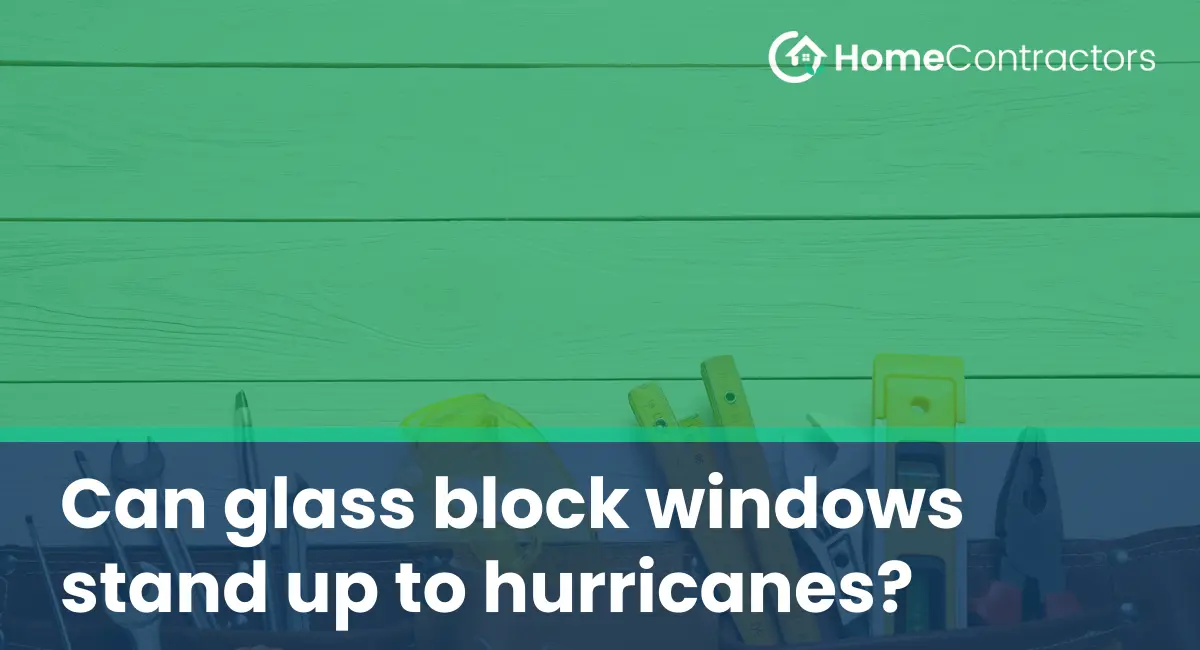When it comes to protection against hurricanes, one key consideration for homeowners is the durability of their windows. While traditional windows may be vulnerable to the strong winds and flying debris associated with hurricanes, glass block windows could provide a viable alternative. With their unique composition and design, glass block windows possess several features that make them capable of withstanding the intense conditions of hurricanes. In this article, we will explore the various characteristics and advantages of glass block windows, as well as discuss their potential limitations in hurricane-prone areas.
Composition of Glass Block Windows
Glass block windows are made by fusing together two glass halves with a hollow center, creating a solid, reinforced structure. These windows are typically composed of thick and durable glass, allowing them to withstand significant pressure. Additionally, the sealed edges of glass block windows further enhance their strength, making them less susceptible to breaking or cracking during extreme weather conditions.
Resistance to High Winds
One of the primary concerns during a hurricane is the high winds that can reach speeds surpassing 100 miles per hour. Glass block windows excel in their ability to withstand such forces due to their solid construction. Unlike traditional windows, which may be made of multiple smaller glass panes held together by a frame, glass block windows provide a homogeneous structure with no weak points. This cohesive design allows them to resist the force of hurricane winds and reduce the likelihood of structural failure.
Protection against Flying Debris
Another factor to consider during hurricanes is the potential for flying debris. With winds capable of carrying objects at high velocities, windows are particularly vulnerable. However, glass block windows offer excellent protection against flying debris due to their robust composition. The thick glass used in these windows is less likely to shatter or break when struck by objects, reducing the risk of damage to the home’s interior and the potential for injury to occupants.
Enhanced Energy Efficiency
Apart from its durability benefits, glass block windows also offer excellent energy efficiency. The thick glass blocks act as a natural insulator by reducing heat transfer, helping to maintain a stable indoor temperature. This quality can be advantageous for homeowners in hurricane-prone areas as it minimizes the need for excessive air conditioning or heating, even during power outages that often occur during severe storms.
Limitations of Glass Block Windows in Hurricane-Prone Areas
While glass block windows offer numerous advantages during hurricanes, it is important to recognize their limitations as well. One crucial downside of glass block windows is their inability to be opened or provide ventilation. Unlike traditional windows with operable parts that allow air circulation, glass block windows are fixed, making them unsuitable for rooms where ventilation is essential, such as kitchens or bathrooms.
Additionally, glass block windows may not be suitable for areas with a high risk of storm surge. Storm surges often accompany hurricanes and can result in significant water levels rising above ground level. The sealed nature of glass block windows prevents water from entering the interior during normal rainfall; however, prolonged exposure to high water levels during storm surges could lead to leakage or damage.
Glass block windows can indeed stand up to hurricanes, thanks to their durable construction and resistance to high winds and flying debris. Homeowners living in hurricane-prone areas can benefit from the added protection and energy efficiency provided by these windows. While there are limitations to consider, particularly in regards to ventilation and potential storm surge damage, glass block windows remain an attractive option for those seeking increased storm resistance without compromising on aesthetics or functionality.
